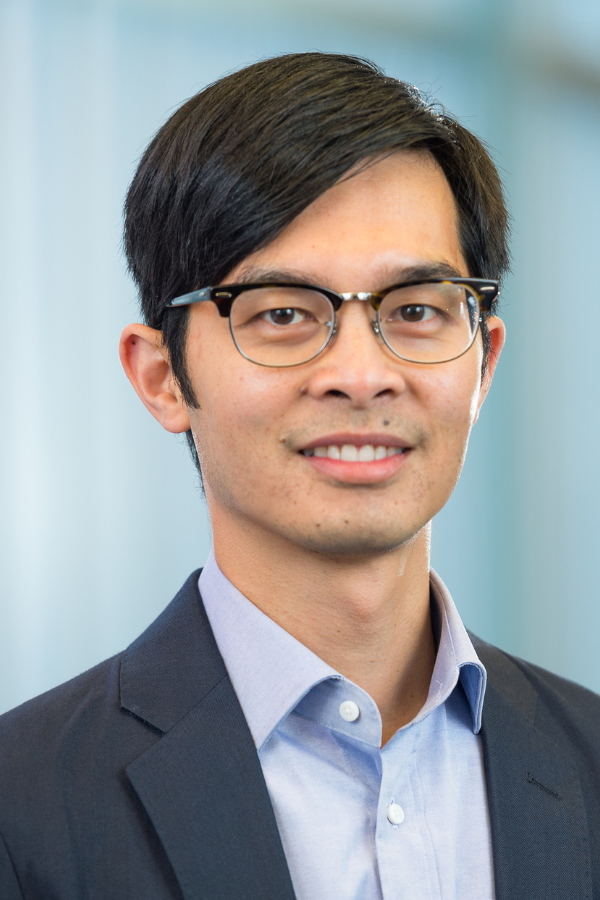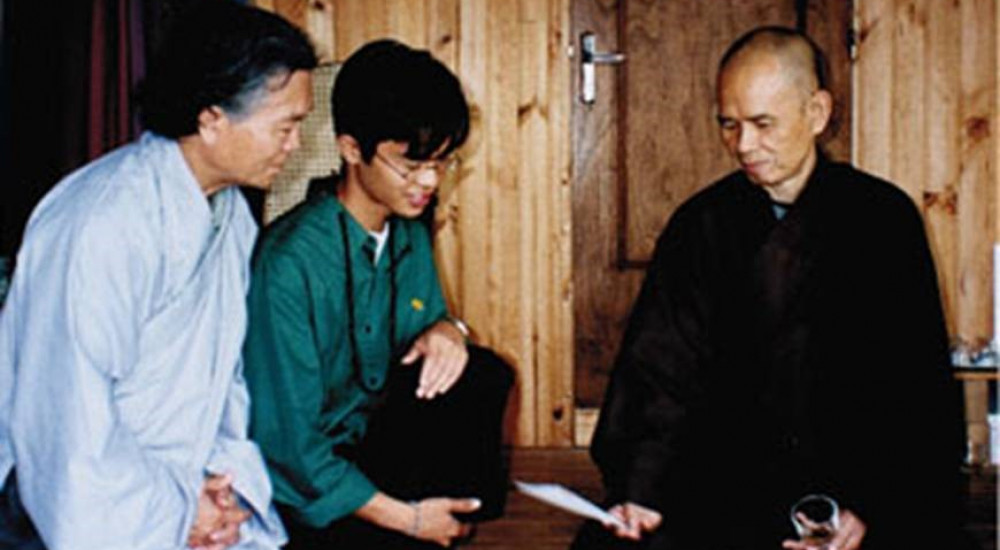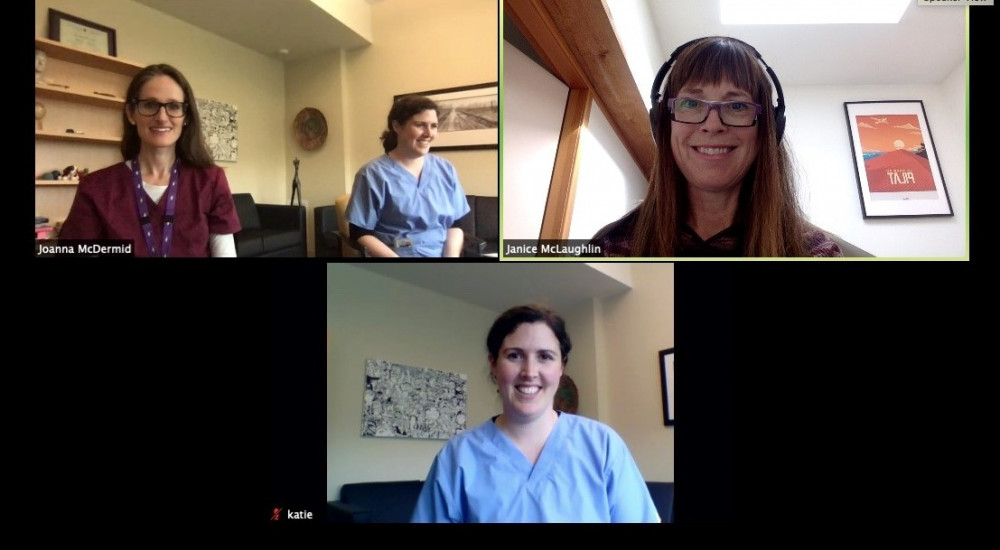
The importance of self-care has become more and more evident, especially during these pandemic times. Yet, practicing self-care is highly personal and can look very different from one person to the next. For International Self-Care Day, we talked with Dr. Dzung Vo about self-care and his clinical work with teenagers on mindfulness-based interventions. Dr. Vo is the director of BC Children’s Hospital Centre for Mindfulness and an investigator on the Adolescent Health team at BC Children’s Hospital.
What is mindfulness?
Mindfulness is about being fully present in the moment, while — without judgment — bringing compassionate awareness to any feelings, thoughts and sensations as they come and go. However, to really understand what mindfulness is, one needs to experience it. As Dr. Vo puts it, it’s like asking someone, “What does your favourite song sound like?”
All trees have roots
Dr. Vo’s own personal journey with a regular mindfulness practice started when he was a young adult learning from Vietnamese Zen Master, Thich Nhat Hanh, who he considers to be his root mindfulness teacher. He regularly went on group retreats with Thich Nhat Hanh where he felt the power of collective mindfulness firsthand. Dr. Vo credits the practice for helping him build resilience in the face of stress during medical school, pediatric residency, adolescent medicine fellowship and finally, as a working physician.

Mindfulness changed his life for the better, which eventually led him to wonder, “Could mindfulness be something that can help teenagers with chronic stress and pain?”
This was a question that Dr. Vo explored in the mid-2000s — long before mindfulness became a buzzword and when the topic of mental health was more stigmatized. During this time as a fellow training in adolescent medicine, he saw many teenagers who were struggling with health conditions and noticed that many of their health-risk behaviours and physical and emotional pain were related to stress.
Adolescence as a window of opportunity
“Adolescence is an important period of development where youth are just starting to learn how to manage their emotions and pain. Their brains are actually rewarded for trying out new things and experimenting, which can work out in both healthy and unhealthy ways,” says Dr. Vo.
“Even though adolescents struggle with all sorts of challenges, these challenges can present opportunities to learn how to manage stress and build resilience. In turn, this can provide them with a foundation for lifelong resilience and help them become healthy adults for decades to come,” he continues. “As adults, it’s really important for us to guide them towards healthy choices.”
During his fellowship, Dr. Vo started studying mindfulness-based stress reduction (MBSR), a program that was initially developed by Dr. Jon Kabat-Zinn to help patients manage stress using mindfulness practices. It has since evolved as a foundation for applying mindfulness in clinical settings for a wide variety of health conditions. At the time, there was a growing body of research showing the benefits of mindfulness for adults, but there was very little research or practice on mindfulness for youth.
After arriving at BC Children’s Hospital in 2010, Dr. Vo started working with his colleague Dr. Jake Locke, who was a psychiatrist at the hospital and also had MBSR training, to develop a mindfulness training program for adolescents.
“What we quickly noticed is that even though the teenagers we worked with came to the health-care system presenting with different diagnoses, they all shared a common suffering. Many of my patients with chronic pain also had depression and anxiety, and many of Dr. Locke’s patients living with mental health issues also had chronic pain,” says Dr. Vo.
While mindfulness isn’t about treating specific diagnoses or even getting rid of pain, he and Dr. Locke quickly saw how it could potentially help address the suffering that many of their patients were experiencing, or at least help to shift the relationship they have with their suffering.
A mindfulness training program for youth is born
After consulting with Dr. Kabat-Zinn, Dr. Vo and Dr. Locke launched the MARS-A (Mindful Awareness and Resilience in Adolescents) program for teenagers ages 15 to 19 with psychological distress, with or without co-occurring health conditions. The program lasts for eight weeks and participants do not need a formal psychiatric diagnosis to join. At the time of its launch, there was an assumption that teenagers “couldn't meditate” or wouldn’t be interested.
But their experience was the opposite. As soon as the teenagers were able to see the relevance of mindfulness in their lives, they quickly became really interested, open-minded and creative in how they applied what they learned. For example, the teens would do a STOP (Stop, Take a breath, Observe, Proceed) meditation or a body scan meditation before taking a stressful exam at school.
“In the MARS-A program, we see this creativity all the time. The teenagers would be introduced to mindfulness at the beginning of the program and then about halfway through, they molded the mindfulness practices that they were taught to suit their personal lifestyles,” says Dr. Vo. “Basically, it didn’t take them long to integrate it into their own way of life, even within the context of their symptoms or illness.”
Mindfulness meets virtual health
Over the past few years, the pandemic has forced the program to go virtual, which has led to surprising outcomes. First, it made the program more accessible to those who had transportation barriers. Second, it brought a different sense of connection among the participants.

“In the virtual format, oftentimes they’d be in their room and we could see the kind of art on their wall. Sometimes the teenagers would bring their cat or dog and everyone would meditate together with their pets included,” says Dr. Vo.
“Running the program in a virtual format reminded me how important it is for us as researchers to put our biases aside and come with our hypothesis, curiosity and an open mind.”
In the future, Dr. Vo hopes to offer the program in both virtual and in-person formats and let people choose which one works best for them.
Lessons still relevant a decade later
Recently, Dr. Vo received an email from one of the first participants of MARS-A who joined the program almost 10 years ago when she was 15 years old. She recalls how the program changed her life. Every Wednesday for 90 minutes, she would gather with a group of fellow teens and learn a different way of mediation, including mindful eating, walking and body scans. The course only lasted for several weeks, but the lessons she took away from it “caused a ripple effect that led to living an authentic life filled with self-trust and compassion.”
MARS-A is really only about planting the seed, and Dr. Vo acknowledges how exciting it is to see it grow — often in unexpected ways that cannot be easily captured in research. He has seen the benefits in his clinical practice over and over, but the benefits may only show up years later and in indirect ways.
Mindfulness is just one tool in the toolbox
“Even when mindfulness is helpful, it’s not enough to ‘meditate away’ our problems or ask young people to do so. We also need to address root causes of illness and distress, such as systemic inequality and social determinants of health,” says Dr. Vo.
“Mindfulness is not a panacea; it's just one more tool that can be helpful in shifting our relationship to managing pain and stress, and in turn guide us to become more resilient human beings in the face of adversity.”
Download the Breathr app and start exploring mindfulness at home.
Visit the BC Children’s Hospital Kelty Mental Health Resource Centre’s website for more resources and information on practicing mindfulness.




